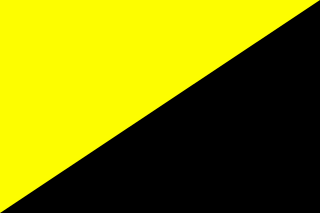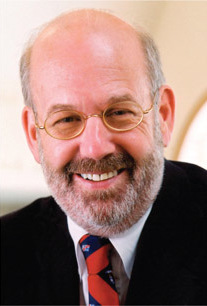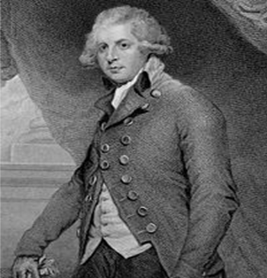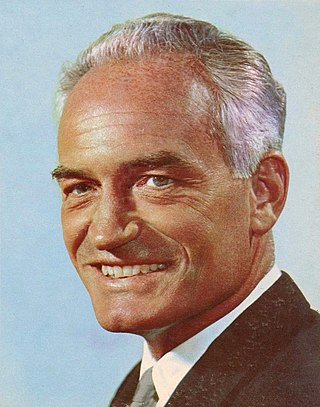
Anarcho-capitalism is an anti-statist, libertarian political philosophy and economic theory that seeks to abolish centralized states in favor of stateless societies with systems of private property enforced by private agencies, the non-aggression principle, free markets and self-ownership, which extends the concept to include control of private property as part of the self. In the absence of statute, anarcho-capitalists hold that society tends to contractually self-regulate and civilize through participation in the free market, which they describe as a voluntary society involving the voluntary exchange of goods and services. In a theoretical anarcho-capitalist society, the system of private property would still exist and be enforced by private defense agencies and/or insurance companies selected by customers, which would operate competitively in a market and fulfill the roles of courts and the police.
The Austrian School is a heterodox school of economic thought that advocates strict adherence to methodological individualism, the concept that social phenomena result primarily from the motivations and actions of individuals and their self interest. Austrian school theorists hold that economic theory should be exclusively derived from basic principles of human action.

Murray Newton Rothbard was an American economist of the Austrian School, economic historian, political theorist, and activist. Rothbard was a central figure in the 20th-century American libertarian movement, particularly its right-wing strands, and was a founder and leading theoretician of anarcho-capitalism. He wrote over twenty books on political theory, history, economics, and other subjects.
Libertarians have differing opinions on the validity of intellectual property.
The libertarian perspective on immigration is often regarded as one of the core concepts of libertarian theory and philosophy. There is considerable disagreement among libertarians as to what stance towards immigration best accords with libertarian principles. Some hold that restrictions on immigration are an infringement of the rights of immigrants and other property owners and constitute a threat to individual liberty. Others maintain that open borders amount to a policy of forced integration on the part of the state, and that protecting the rights of property holders requires that present governments adopt much more discriminatory policies on who is allowed to enter a country.
The Ludwig von Mises Institute for Austrian Economics, or Mises Institute, is a nonprofit think tank headquartered in Auburn, Alabama, that is a center for radical libertarian thought and the right-wing paleolibertarian and anarcho-capitalist movements in the United States. It is named after the economist Ludwig von Mises (1881–1973) and promotes heterodox Misesian Austrian economics.

Llewellyn Harrison Rockwell Jr. is an American author, editor, and political consultant. A libertarian and a self-professed anarcho-capitalist, he founded and is the chairman of the Mises Institute, a non-profit promoting the Austrian School of economics.
Libertarian perspectives on foreign intervention started as a reaction to the Cold War mentality of military interventionism promoted by American conservatives like William F. Buckley Jr. which had supplanted Old Right non-interventionism. The Vietnam War split the uneasy alliance between growing numbers of self-identified libertarians and the Cold War conservatives. Libertarians opposed to the war joined the draft resistance and peace movements and created organizations such as Students for a Democratic Society. The split was aggravated at the 1969 Young Americans for Freedom convention where the burning of a draft card sparked physical confrontations among convention attendees, a walkout by many libertarians, and the creation of antiwar libertarian organizations. Left-libertarians generally oppose foreign military intervention on anti-imperialist grounds, while right-libertarians also generally oppose foreign military intervention and generally oppose all government foreign aid as well. In the United States, the Libertarian Party opposes strategic alliances between the United States and foreign nations.
Paleolibertarianism is a libertarian political activism strategy aimed at uniting libertarians and paleoconservatives. It was developed by American anarcho-capitalist theorists Murray Rothbard and Lew Rockwell in the American political context after the end of the Cold War. From 1989 to 1995, they sought to communicate libertarian notions of opposition to government intervention using messages accessible to working and middle-class people of the time, and combining libertarian free market views with the cultural conservatism of Paleoconservatism, while also opposing protectionism. The strategy also embraced the paleoconservative reverence for tradition and religion. This approach, usually identified as right-wing populism, was intended to radicalize citizens against the state. The name they chose for this style of activism evoked the roots of modern libertarianism, hence the prefix paleo. That founding movement was American classical liberalism, which shared the anti-war and anti-New Deal sentiments of the Old Right in the first half of the 20th century. Paleolibertarianism is generally seen as a right-wing ideology.

Richard Cantillon was an Irish-French economist and author of Essai Sur La Nature Du Commerce En Général, a book considered by William Stanley Jevons to be the "cradle of political economy". Although little information exists on Cantillon's life, it is known that he became a successful banker and merchant at an early age. His success was largely derived from the political and business connections he made through his family and through an early employer, James Brydges. During the late 1710s and early 1720s, Cantillon speculated in, and later helped fund, John Law's Mississippi Company, from which he acquired great wealth. However, his success came at a cost to his debtors, who pursued him with lawsuits, criminal charges, and even murder plots until his death in 1734.
Abstention is a term in election procedure for when a participant in a vote either does not go to vote or, in parliamentary procedure, is present during the vote but does not cast a ballot. Abstention must be contrasted with "blank vote", in which a voter casts a ballot willfully made invalid by marking it wrongly or by not marking anything at all. A "blank voter" has voted, although their vote may be considered a spoilt vote, depending on each legislation, while an abstaining voter has not voted. Both forms may or may not, depending on the circumstances, be considered to be a protest vote. Abstention is related to political apathy and low voter turnout.
The non-aggression principle (NAP), also known as the non-aggression axiom, is the moral and political principle that all forms of proactive aggression – including the initiation of threats, or use, of force against an individual, their property, or agreements (contracts) – are illegitimate and should be prohibited. Interpretations of the NAP vary, particularly concerning issues like intellectual property, force, and abortion.
Libertarianism is a political philosophy that upholds liberty as a core value. Libertarians seek to maximize autonomy and political freedom, emphasizing equality before the law and civil rights to freedom of association, freedom of speech, freedom of thought and freedom of choice. Libertarians are often skeptical of or opposed to authority, state power, warfare, militarism and nationalism, but some libertarians diverge on the scope of their opposition to existing economic and political systems. Various schools of libertarian thought offer a range of views regarding the legitimate functions of state and private power. Different categorizations have been used to distinguish various forms of Libertarianism. Scholars distinguish libertarian views on the nature of property and capital, usually along left–right or socialist–capitalist lines. Libertarians of various schools were influenced by liberal ideas.

Ludwig Heinrich Edler von Mises was an Austrian–American Austrian School economist, historian, logician, and sociologist. Mises wrote and lectured extensively on the societal contributions of classical liberalism and the power of consumers. He is best known for his work on praxeology studies comparing communism and capitalism.
Right-libertarianism, also known as libertarian capitalism, right-wing libertarianism, or colloquially as libright, is a libertarian political philosophy that supports capitalist property rights and defends market distribution of natural resources and private property. The term right-libertarianism is used to distinguish this class of views on the nature of property and capital from left-libertarianism, a type of libertarianism that combines self-ownership with an egalitarian approach to natural resources. In contrast to socialist libertarianism, right-libertarianism supports free-market capitalism. Like most forms of libertarianism, it supports civil liberties, especially natural law, negative rights, the non-aggression principle, and a major reversal of the modern welfare state.
The Center for Libertarian Studies (CLS) was a libertarian and anarcho-capitalist oriented educational organization founded in 1976 by Murray Rothbard and Burton Blumert, which grew out of the Libertarian Scholars Conferences. That year, the conference was sponsored by industrialist and libertarian Charles Koch. It published the Journal of Libertarian Studies from 1977 to 2000, a newsletter, several monographs, and sponsors conferences, seminars, and symposia.

The Ethics of Liberty is a 1982 book by American philosopher and economist Murray N. Rothbard, in which the author expounds a libertarian political position. Rothbard's argument is based on a form of natural law ethics, and makes a case for anarcho-capitalism.

For a New Liberty: The Libertarian Manifesto is a book by American economist and historian Murray Rothbard, in which the author promotes anarcho-capitalism. The work has been credited as an influence on modern libertarian thought and on part of the New Right.

Libertarian conservatism, also referred to as conservative libertarianism and conservatarianism, is a political and social philosophy that combines conservatism and libertarianism, representing the libertarian wing of conservatism and vice versa.
The 1983 Libertarian National Convention was held from August 29 to September 4, 1983, at the Sheraton Hotel in New York, New York. The delegates at the convention, on behalf of the U.S. Libertarian Party, nominated David Bergland for the president and James A. Lewis for the vice president in the 1984 presidential election.







